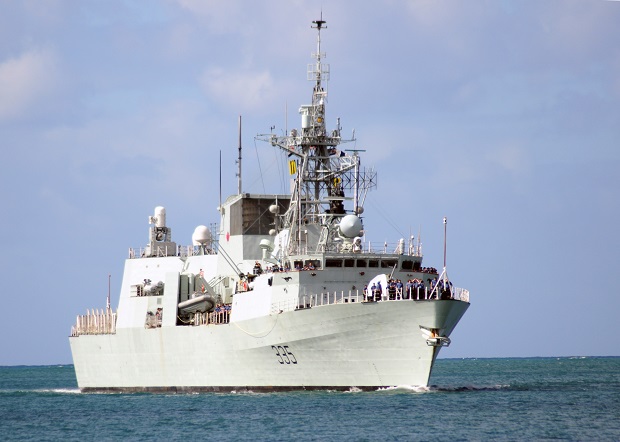A fleet of Canadian navy ships will be equipped with new remote weapon stations as part of a $36 million contract signed by the government with Raytheon Canada Ltd.
Under the terms of the deal, Raytheon will provide up to 58 naval remote weapon stations for the Royal Canadian Navy.
The stations will be installed on Canada’s existing fleet of Halifax-class modernized frigates, as well as on the future Queenston-class Join Support Ships. The contract also ensures ongoing overhaul and maintenance of the equipment for an initial five years, as well as two additional weapon stations to be used for training in both the east and west coast fleet schools.
“Canada needs a fleet that is both capable and flexible, one that will enable us to defend the country’s maritime interests here at home and around the world,” Vice-Admiral Mark Norman, commander of the RCN, said. “Part of that force capability includes the inherent need to protect our ships and sailors from the threats they may encounter in any operational setting. The acquisition of this remotely operated weapon system will enhance the Navy’s close-in force protection capability while also providing enhanced personal protection to the crew operating these systems.
Hear from military personnel what Canada needs to enhance its C4ISR capabilities. Click on the logo below
The weapon stations currently on board the fleet of Halifax-class modernized frigates are not remotely operated and require gun operators to be outside on the ship deck operating the guns.With these new Naval Remote Weapon Stations, operators will now be able to remotely observe and locate targets under various environmental conditions (day or night, rain, snow, smoke, dust/sand, haze, fog and various sea/air temperature, as well as other conditions affecting visibility) from a separate compartment on board the ship, which will increase the safety and protection of the ship’s crew.
The Naval Remote Weapon Stations contracts are aligned with the Defence Procurement Strategy, which aims to leverage military spending to create highly skilled jobs and drive economic growth across the Canadian economy.
The delivery of the Naval Remote Weapon Stations is expected to begin in August 2017. These contracts will help create and maintain up to 23 jobs in Canada.
